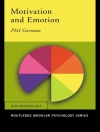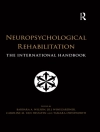Peer Groups and Children’s Development considers the experiences of school-aged children with their peer groups and its implications for their social, personal and intellectual development
* Focuses on the peer group experiences of children attending school in Western societies, from five years of age through to adolescence
* Considers peer groups in classrooms, friendships made within and outside of school, and the groups that children participate in for extra-curricular activities
* Includes a final summary which brings together the significant implications for theory, policy and practice
* Unique in that no other volume reviews and integrates literature relating to peer groups in both classroom and out-of-class settings
* Addresses the research interests of psychologists and educationalists, as well as the practical concerns of teachers, parents, counsellors, and policy makers
Inhoudsopgave
Series Editor’s Preface.
Acknowledgments.
1. Peer Groups in a Cultural Context.
Introduction.
Cultural Dependency.
Theoretical Framework.
Peer Groups and Children’s Development.
2. Peer Groups and Classroom Structure.
Introduction.
The Peer Group Structure of Classes.
The Structure of Classroom Subgroups.
Summary and Conclusions.
3. Performance and Cooperation in Classrooms.
Introduction.
Whole-Class Interaction and the Performance Mode.
Subgroup Interaction and the Cooperative Mode.
Summary and Conclusions.
4. Cooperative Interaction and Curriculum Mastery.
Introduction.
Piagetian Perspectives on Cooperative Interaction.
Assistance and Cooperative Interaction.
The Social Impact of Classroom Interaction.
5. Friendship, Status, and Centrality.
Introduction.
Children’s Friendships.
Peer Status in Formal Groups.
Status in Friendship Groups.
6. Individual Differences in Informal Experiences.
Introduction.
Varying Experiences of Status.
Friendship and Status Compared.
Continuity and Change.
7. Social and Personal Adjustment.
Introduction.
Peer Groups and Antisocial Behavior.
Peer Groups and Personal Adjustment.
Summary and Conclusions.
8. School Performance Revisited.
Introduction.
Peer Groups and Educational Failure.
Diverse Consequences of Friendship.
Classroom Practice and Developmental Outcomes.
9. Implications for Practice and Future Research.
Summary and Introduction.
Remedial Work with Individuals.
Qualified Endorsement of the Cooperative Approach.
Future Research and Theoretical Development.
References.
Index.
Over de auteur
Christine Howe is Professor of Education at the University of Cambridge, and Fellow of Lucy Cavendish College. Previously she was Professor of Psychology at the University of Strathclyde. Her main research interests are peer interaction and conceptual growth, children’s reasoning in mathematics and science, and communication and social relations among children. In addition to publishing seven books and over 100 journal articles, Christine was for many years co-editor of the journal Social Development and has served as Chair of the British Psychological Society’s Developmental Section.












